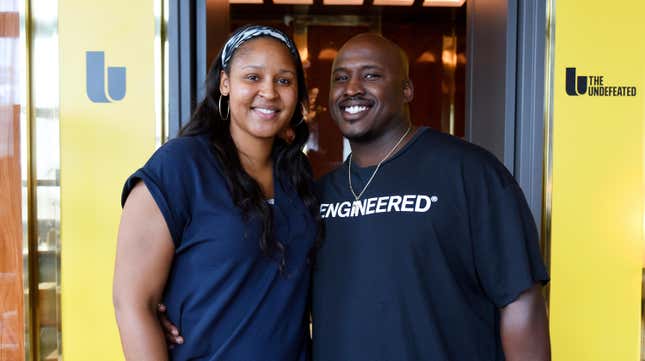WNBA Star Welcomes First Baby with Husband She Helped Free from Wrongful Prison Sentence
After Maya Moore helped overturn Jonathan Irons' sentence in 2020, the couple is experiencing the kind of joy far too many innocent Black men are denied.
JusticePolitics

Basketball star turned criminal justice reform activist Maya Moore and her husband, Jonathan Irons, announced the birth of their first child on Tuesday. Considering Moore is one of the greatest basketball players to ever grace the game—she won four WNBA championships with the Minnesota Lynx and was awarded league MVP in 2014—the birth of her first child would be enough to warrant a rave little blog post on its own. But the couple’s journey to parenthood is far more meandering and politically fraught than the average nuclear family’s progression towards a bundle of joy. The existence of this baby is a miracle—a triumph over a criminal justice system that slants toward the vengeance of white folks at the expense of innocent Black men, a rare happy ending, and a long-overdue, stolen sense of normalcy.
Moore and Irons revealed this week on Good Morning America that they had welcomed their first child, a son named Jonathan Hughston Irons Jr., in February. After marrying in 2020, the couple’s budding family is the sort of comfort every American family should have access to pursue if they so choose. But just two years ago, Irons was behind bars serving a 50-year-sentence for a crime that a misguided, all-white jury agreed he had committed when he was a teenager. If not for Moore, Irons might still be locked up in a maximum-security prison for a crime he did not commit, ineligible for parole until he turned 60 years old.
-

-

-

-

-

-

-

-

-

-

-

-

-

-

-

-

-

-

-

-

-

-

-

-

-

-

-

-

-

-

-

-

-

-

-

-

-

-

-

-








































